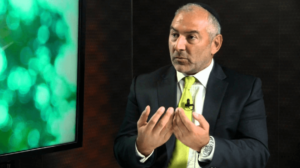Does there need to be an IB revolution in the b-book FX & CFD market? – Perspective from within
Meir Velenski looks at the numbers game played by many b-book brokerages when working with all-important IBs, and how to resolve the conflict of interest between introducer and brokerage

You get what you pay for, so says the age old adage.
The whole world knows that statement. If it looks cheap then it very likely is cheap. If it is cheap then it breaks and has no longevity.
That sums up the IB relationship with many B-book FX and CFD players globally.
Many B-book FX and CFD firms are still working on the old model which harks back to the end of the last decade which centers around them attempting to get as many IBs on board and give them some spread, and it is a model which lacks commitment from both sides.
Let me explain.
B-Book operators within financial markets
Today the FX firms and CFD firms who are B Book operators, are set up for client losses. This means they are making a price in a product and the trader will either win or lose. If the trader makes a profit then the firm loses. Conversely, if the trader loses money on the trade then the firm will make that money.
Under this particular operational model in which the companies ‘internalize’ all orders and do not send them to a live market, the main focus is to bank as many client losses as possible.
A company which operates on this basis may say that they hedge the trade (cover it or sell the trade on), as this will make them look good for marketing purposes as then they can state that they don’t make money on client losses. Claims such as this may be true, or may not be and there is no way of telling until MiFID II is fully implemented at which point internalizers will have to publish their trade information so that it can be viewed publicly.
Bearing this in mind, many companies that operate a B- book will only hedge if they absolutely have to.
False spread
The price that the b-book brokerage is guided by is not necessarily the market price but instead it is often a price set by the firm. There is no real spread paid as the bid / offer price is produced by the internal dealing desk and is there in order to give the internalizing firm the upper hand on the trade.
Once the trader gets passed the spread and all other charges then the profits belong to the trader.
A-book operators & prime brokers
These firms take no risk at all and pass the full trade through to the prime brokerage divisions within Tier 1 banks usually via an aggregated liquidity feed provided by a prime of prime, and sometimes in conjunction with other non-bank liquidity providers which provide market access via institutional electronic communication networks (ECNs).
Prime of prime providers with prime brokerage relationships with major banks and the ability to aggregate price feeds and distribute them to retail FX brokerages are often A book operators but they also want to take on risk as taking on risk produces profits.
If the risk is too great to the prime broker then they pass it on. It all depends on his book value and the risk appetite. Remember, it’s the prime brokers that will be left with the trade if the market suddenly makes a volatile move.
What has this to do with IBs?
Well, the introducing broker brings clients to the firm with whom has an introducing broker’s agreement. Quite often, the introducing broker will be paid part of the spread ( bid / offer spread) on each opening trade his client transacts with the firm. This means that the client can either be a light trader, the in which the introducing broker will receive a smaller revenue, or a high volume trader, which means that the introducing broker will generate larger commissions.
Looking closely at this model shows that the introducing broker the b-book brokerage have opposing directions in many cases. The FX firm wants the client to lose as much as possible as each dollar lost is a dollar in their bank account, however, the introducing broker wants the client to trade and make money as then he will earn from the spread.
This model is flawed and needs to be reviewed. The problem is that no FX firm is willing to step out take the risk or pay the price. Presently, many b-book firms are just looking for anyone who has a pulse to be an IB and the lack of respect to the IB is manifested in the relationship. Quite simply, the IB does not trust the FX firm and the FX firm does not really trust the IB.
New model
I have mentioned many times that the correct way forward is to invest in the serious IB operators and help them function and develop their market position. This would mean that the FX firm would contract with the IB to share the costs and share the revenue, whether that be the spread revenue or the loss model.
This way, by investing in the IB the FX firm is getting a commitment and the IB is committed to the host and by doing this the FX/CFD provider will be able to have a much more profitable model of fewer but bigger IBs.
This model has been mentioned by me in many meetings, but the shortsighted approach to the IB simply means there is no mutual respect. With moving into a new period of FCA Tuesday and Brexit firms need to start looking at existing and old models and adapt them for the future.
Pay cheap you get cheap. It is time to move on.









